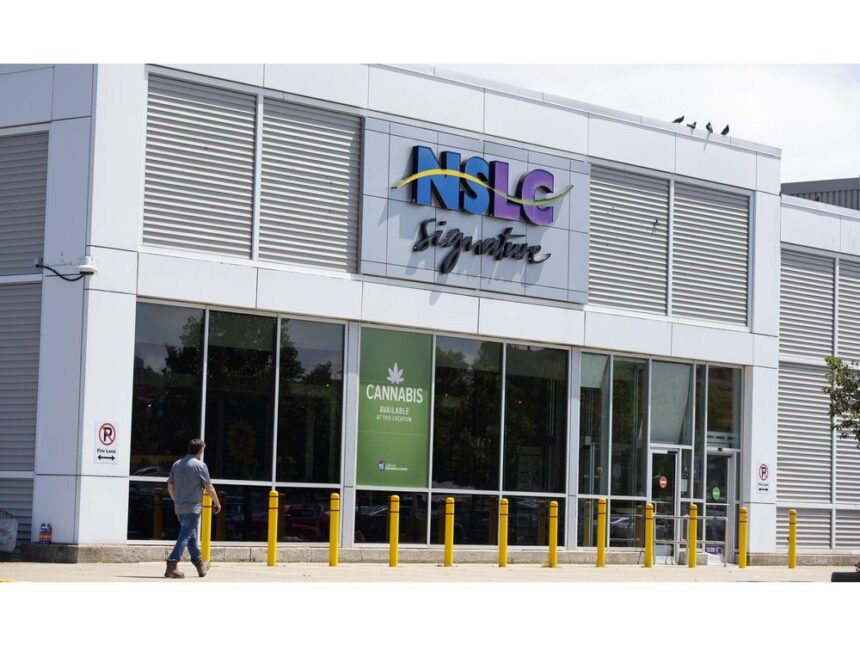Published Jul 14, 2025Last updated 3 hours ago4 minute readThe NSLC store on Joseph Howe Drive in Halifax on Monday, July 14, 2025. Photo by Ryan Taplin /The Chronicle HeraldArticle contentExpanding public access to liquor in Nova Scotia might win some political points but the long-term cost will be paid in women’s shelters, hospitals, policing and people’s lives, says a group of concerned Nova Scotians.THIS CONTENT IS RESERVED FOR SUBSCRIBERS ONLY.Subscribe now to access this story and more:Unlimited access to the website and appExclusive access to premium content, newsletters and podcastsFull access to the e-Edition app, an electronic replica of the print edition that you can share, download and comment onEnjoy insights and behind-the-scenes analysis from our award-winning journalistsSupport local journalists and the next generation of journalistsSUBSCRIBE TO UNLOCK MORE ARTICLES.Subscribe or sign in to your account to continue your reading experience.Unlimited access to the website and appExclusive access to premium content, newsletters and podcastsFull access to the e-Edition app, an electronic replica of the print edition that you can share, download and comment onEnjoy insights and behind-the-scenes analysis from our award-winning journalistsSupport local journalists and the next generation of journalistsRegister to unlock more articles.Create an account or sign in to continue your reading experience.Access additional stories every monthShare your thoughts and join the conversation in our commenting communityGet email updates from your favourite authorsSign In or Create an AccountorArticle content“It is government’s job to protect the public’s health and safety,” the group, piloted by Sue Bookchin, executive director of the Mahone Bay-based Be the Peace Institute, said in an open letter dated late last month.Article contentArticle contentArticle content“They (government) cannot shirk this responsibility.”Article contentJohn Lohr, the minister responsible for administering the Liquor Control Act, said Thursday that all sides of the issue will be considered.Article content“Clearly, every voice matters,” Lohr told reporters after a cabinet meeting. “I do care about social responsibility. We are hearing those voices but we also hear from people who think that it (alcohol) should be more readily available. All of those things will be filtered through that information process.”Article contentThe process began in late May, when the provincial government announced it was spending $300,000 to survey some 1,500 Nova Scotians and solicit feedback from 250 stakeholders about where alcohol could be sold in the province.Article contentAlcohol is currently sold at just over 300 retail locations, including Nova Scotia Liquor Corp. (NSLC), corporate and agency stores, private wine and specialty stores, on-site stores at breweries and wineries, and farmers’ markets.Article contentArticle contentThe public input portion of the process concluded June 30 and the provincial government is now in the process of collating and evaluating the response.Article contentArticle content“We are reviewing our results and determining next steps,” a Lohr spokeswoman said in an email Monday but the government did not say how many public responses had been received.Article content“As soon as we have information to share, we’ll let Nova Scotians know.”Article content‘Serious, even deadly’ situationArticle contentPotential changes could include expanding retail options or allowing more places where people can drink alcoholic beverages.Article contentSignatories of the open letter, including survivor advocate groups for sexual violence and intimate partner violence, social workers, women’s centres, the Mi’kmaq friendship centre and others, are concerned about potentially expanding alcohol access into grocery and convenience stores and other outlets.Article content“While this may sound like a move toward convenience or economic growth, it carries serious, even deadly consequences – especially for women, children, and marginalized communities already vulnerable to harm and with barriers to supportive services,” the open letter reads. Article content“The evidence is overwhelming. Increased alcohol access, specifically the number of outlets and the hours of availability, is directly correlated with an increase in harms from over-drinking – violence, injuries, sexual assault, illness, addictions, motor vehicle accidents and deaths.”Article contentArticle contentThe letter writers say Nova Scotia already has one of the highest rates of heavy drinking in the country. Article content“Nova Scotia is also largely rural where there are more licensed firearm owners, the rates of gender based violence are 75 per cent higher than the rate for urban women, particularly gun-related femicides, and higher rates of addiction.”Article contentArticle contentThe letter says Nova Scotia also tops national statistics for police-reported intimate partner violence, sexual exploitation, and human trafficking.Article content“Expanding access will only pour gas on an already raging fire. As colleagues and organizations working to end domestic, intimate partner, sexual and other forms of gendered violence, we are not against freedom or convenience. Article content“But alcohol is not an ordinary product. It’s a known driver of many harms to our collective health, safety and well-being, including: domestic violence and homicides; high rates of sexual assaults on university campuses; persistently high incidents of fatal crashes; mental health and addiction issues and emergency room overcrowding.”Article contentDo we need more access?Article contentThe letter writers ask if Nova Scotians really need more and easier access to alcohol.Article contentArticle content“We’ve seen this story before. Provinces like Newfoundland and New Brunswick moved ahead without public health reviews, but Nova Scotia can choose a different path. Article content“We urge the government to pause long enough to conduct a full, gendered, intersectional health impact assessment. Include Indigenous and African Nova Scotian voices. Include survivor voices. Tap the wealth of government public health experts and addiction specialists who are at the ready to compile the data. Article content“Protect the people who will bear the real cost of this decision. We don’t let people drive without seatbelts just because they want to. We regulate for safety and the public’s health, not popularity.”Article contentNSGEU (Nova Scotia Government and General Employees Union) had earlier delivered a robust response in opposition to any government plans to privatize alcohol sales in the province.Article content“The NSLC contributes 100 per cent of their profits, over $280 million annually, to the province, which is used to fund many important public services like health care, education and new infrastructure,” NSGEU first vice-president Hugh Gillis said in a union news release in late June to launch an anti-privatization public awareness campaign.Article content“In these uncertain financial times why would the government look at doing something that would decrease revenue and put public services at risk,” Gillis said.Article contentThe union represents employees who work in NSLC stores and the NSLC distribution centre. Article content“The revenues through the process of the sale of alcohol are incredibly important to us, absolutely,” Lohr said. “That’s a factor in anything that we will decide.Article content“The process is still underway and we haven’t made any decisions. When the decisions are made, part of that (NSLC revenue) will be a factor in the decisions.”Article content
‘Government’s job to protect public health and safety,’ says coalition opposed to expanding alcohol sales outlets in Nova Scotia











